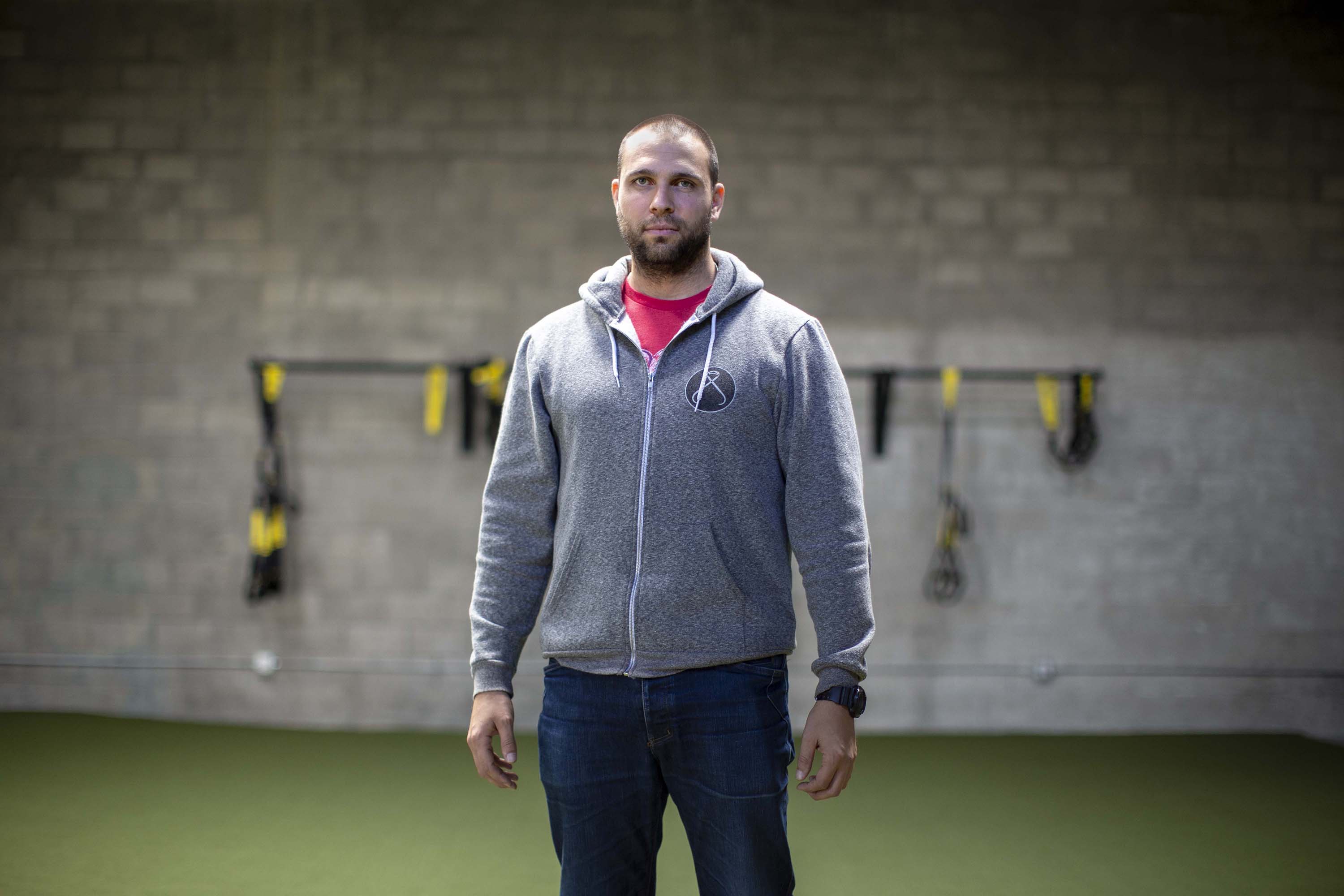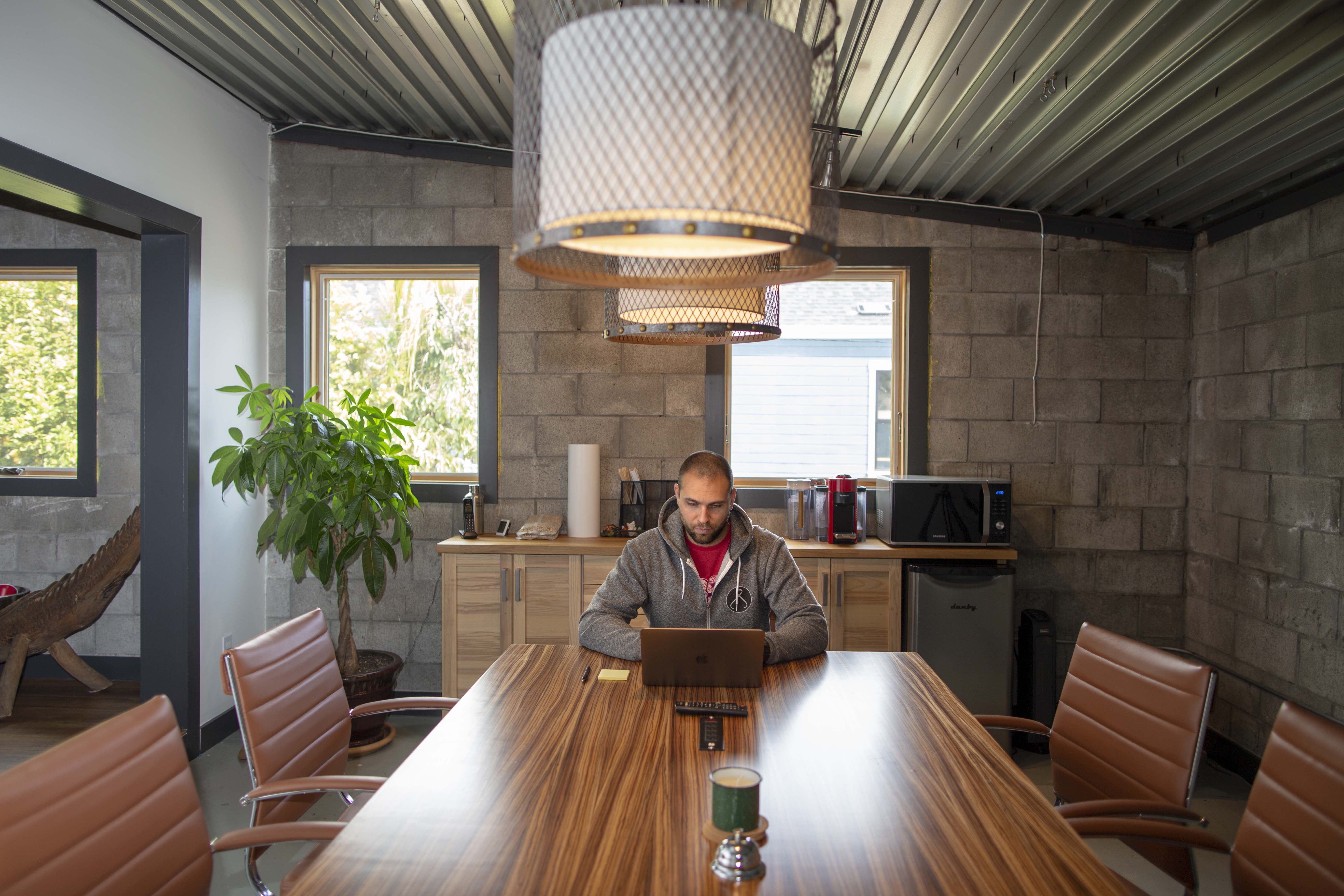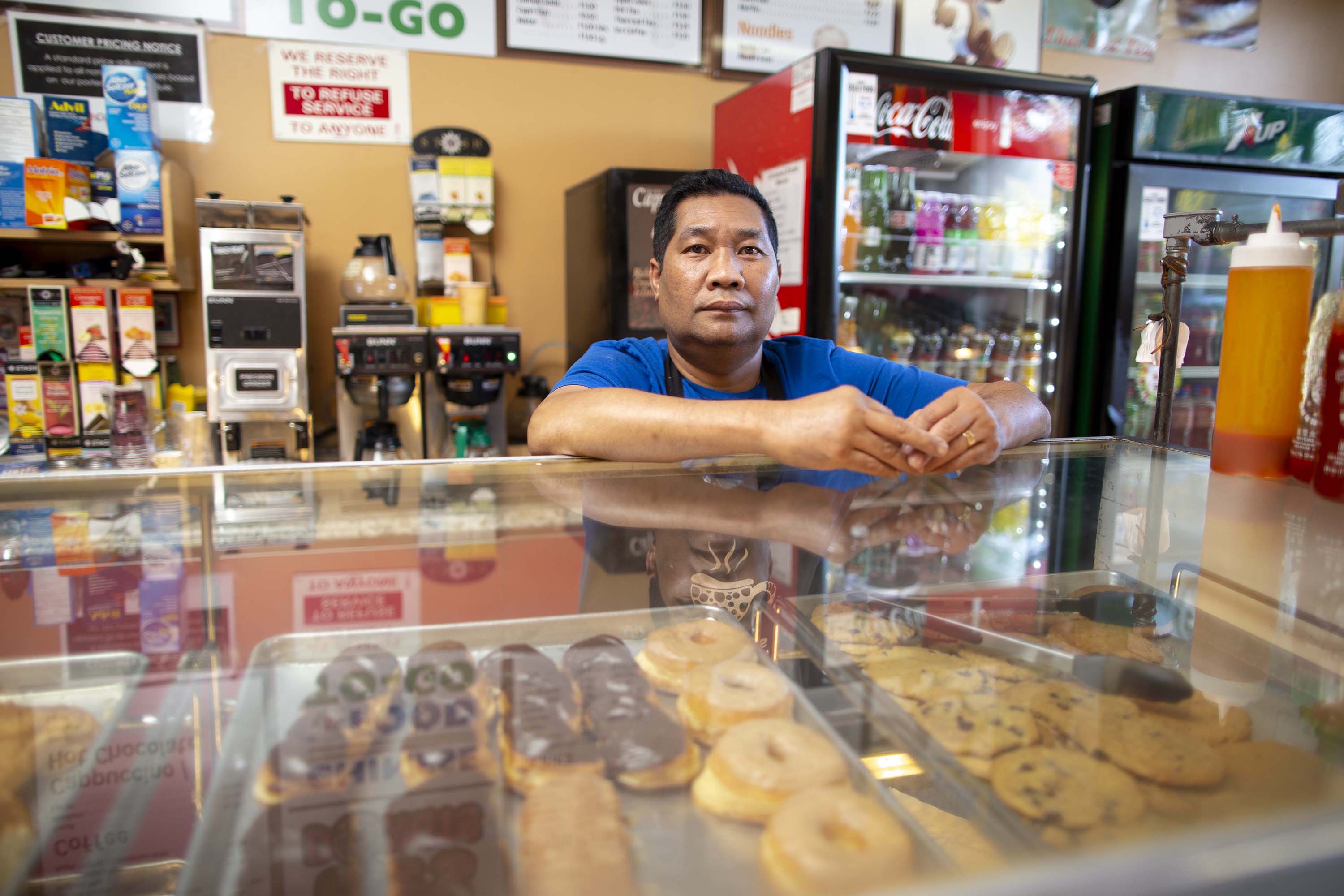Considering all the other costs associated with running his gym, Kinner appreciates the stability.
If he lost that predictability, he says, staying open would be trickier. “If every year my valuation — like the Bay Area — is exceeding the rate that I'm able to grow my business, then I'm just incentivized to sell.”
Why supporters are for split roll
The idea of taxing commercial property differently than homes appeals to many Californians. Oakland resident Samuel Drew, who lives near the gym, likes the idea of keeping Prop. 13 in place for homeowners. But he says many businesses don’t need it.
"I think it's good for working people, to lower their taxes,” Drew says. “But when you're making millions and billions, it just doesn't hit me as fair."
Noah Kinner runs a gym on the corner. It’s a big, gray, industrial space.
However, statewide support for split roll has been declining, according to polling from the Public Policy Institute of California (PPIC). Sixty percent of likely voters were in favor of split roll back in 2012. That support has dropped to 46 percent today.
PPIC president Mark Baldassare says public support is likely to dip when the economy is strong and the state’s budget is healthy.
“I think that many voters look to the split roll as a possibility to help the state out of a financial crisis,” Baldassare says. “But we're not in a financial crisis at the moment.”
Perhaps the biggest selling point for proponents of split roll is how much it would raise in new tax revenue. A USC study found that it could bring in an additional $11.4 billion per year statewide.
"That could pay for a lot of services, healthcare workers and teachers,” says USC researcher and study co-author Jennifer Ito. Alameda County alone would take in about $550 million more each year, she says. “Every county in California would get additional revenue to go toward our local government and schools.”
Split roll backers question why Prop. 13 lets large, older corporations benefit from much lower tax assessments than newer companies right next door.



